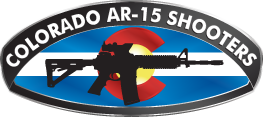Originally Posted by
foxtrot

Four officers pointing (presumably) AR-15's at him, ready to fire. In the position he is in, the average reaction time to register that he has a gun and to pull the trigger on him several times is significantly shorter than the amount of time he requires to retrieve the gun, rotate his arm forward towards the officers, and pull the trigger.
So if he produced a weapon while crawling and used it before the officers fired on him, I'd want drug tests as their reflexes would be slowed to the point to have questions.
Only when he is standing, with a hand held near the (imaginary gun) position on an (presumably open carry) could he potentially draw and fire on officers who are already aiming at him within margins of (slower) reactions if he had skill.
This is all different when an officer has his weapon holstered and is surprised. But four officers with AR's pointed on you ready to fire before you have a weapon? You've got the same chance to get a wendy's soft serve in hell as you do successfully drawing and staying alive long enough to even get it pointed over there. It isn't hollywood, this is the same reason your chance of drawing a concealed weapon is nill if someone has a gun pointed on you, finger on the trigger, much less four people drawn on you.
ETA: I guess my point is, they had such an advantage in the situation that deescalation and hesitation is appropriate. E.g. shooting because he moves? Not good enough. Shooting because they see a weapon? Justified, and still within the margins to mitigate or altogether eliminate risk to the officers.
If we're talking one officer, with a weapon holstered, and all the sudden the suspect reaches into his wasteband, it would be much more justified for that officer to draw and fire in a panic; because their is a real belief his life is in jeopardy and there wouldn't be the time to hesitate.
Someone crawling on the floor makes a mistake with four AR's pointed at them? Sorry, it's real hard for me to believe the officer had a credible belief of risk to his life in that millisecond - e.g. one where he would lose the tactical advantage or be unable to react to save life. The second a weapon was visible? Sure. But they do have the time in this situation to discern that, where in the former (lone officer, holstered weapon) does not.

